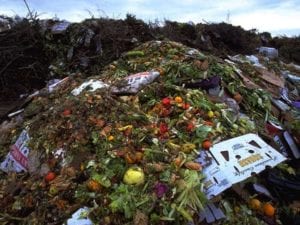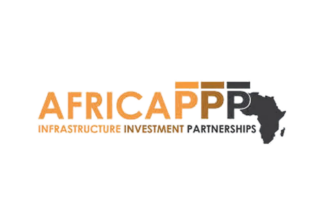According to WWF, 10 million tonnes of food ends up as waste in South Africa, which is about a third of the 31 million tonnes produced annually in the country.
Of this wasted food, about 90% is disposed of to landfills, where it leads to the production of greenhouse gases like methane gas and carbon dioxide. The Council for Scientific and Industrial Research has valued this loss at R61.5 billion. By cutting down on food waste, we not only decrease carbon emissions but significantly turn around the food insecurity felt by many South Africans. 10x20x30 Food Waste Reduction Initiative Pick n Pay, one of the largest supermarket chain stores in South Africa, has asked 20 of its biggest suppliers to join the company in its global food waste reduction initiative, 10x20x30. The project is backed by 10 of the world’s largest food retailers and manufacturers, and will focus on in-store and supply chain food loss and waste. As the demand for food continues to increase around the world, agricultural-based industries are under increasing pressure to maximise yields. At the same time, growers struggle to adapt to climate change, adopt sustainable and innovative growing practices and mitigate environmental impact. As a leader in the potato industry, McCain Foods, international purveyor of frozen potato and appetiser products, is one of the companies participating in this initiative. On getting involved in this initiative, McCain representative, Stephanie Tack, Global Sustainability Manager for McCain says, “McCain’s Sustainability Strategy features ‘Zero waste to landfill’ and ‘100% potato utilisation’ as key initiatives under our Resource Efficient Operations pillar. As of this year, McCain has also committed to the SDG 12.3 to halve our food loss and waste by 2030. Moreover, our global CEO, Max Koeune, is co-sponsor of the Consumer Goods Forum (CGF) Food Waste Coalition of Action. There is thus perfect alignment between McCain’s food waste reduction commitments and PnP’s 10x20x30 initiative.”Bringing local sustainability plans together
In 2019, McCain introduced an aspirational purpose to make planet-friendly food. While this will take time and effort to achieve, the first steps have begun by bringing local sustainability plans together under one Global Sustainability Strategy. McCain identified four key pillars, namely Smart & Sustainable Farming, Resource-Efficient Operations, Good Food and Thriving Communities. The Strategy is aligned with the UN’s Sustainable Development Goals and identified seven goals where the company can contribute its resources and relationships with greatest effect. Says Tack, “McCain strongly believes that partnerships and multi-stakeholder collaborations are key to achieving a more sustainable planet. This is one of the reasons why we have taken part in this initiative and partnered with other various stakeholders to reach our sustainability goals for 2020 and beyond.” By 2025 McCain SA will have increased its potato crop usage from 93% currently to 97%, through a combination of varietal and localising speciality potato production. Various other initiatives are also underway such as the use of sweet potato losses at the farms and factories to produce a highly nutritious sweet potato puree for various applications currently under development with a number of potential partners, including PnP retail partner. Orange Fleshed Sweet potato losses at farm and factory level will be used to produce a highly nutritious puree which will address both food waste as well as nutrition concerns in South Africa. Moral obligation towards the planet and people However, McCain has noted that measurements are one of the challenges. Adds Tack, “While we have better control of our own operations, at McCain we would also like to support our farmers to reduce on-farm and post-harvest losses. It is of key importance to have a clear view of where the food loss and waste hotspots are across our value chains, to be able to identify the most impactful actions.” Tack continues, “Through the CGF coalition of action, we are making efforts among all companies to harmonise the reporting of food loss and waste so that we can well assess progress with the same methodology. The 10x20x30 initiative aligns us all on the simple approach to Target-Measure-Act.” “While we have a moral obligation towards the planet and people to accelerate action on food waste reduction, it is also absolutely in the interest of our businesses. It is a global challenge which we cannot solve alone, partnerships and collaborative action are of key importance. We’re very pleased about partnering with Pick n Pay to jointly address food waste in our value chains,” concludes Tack.






